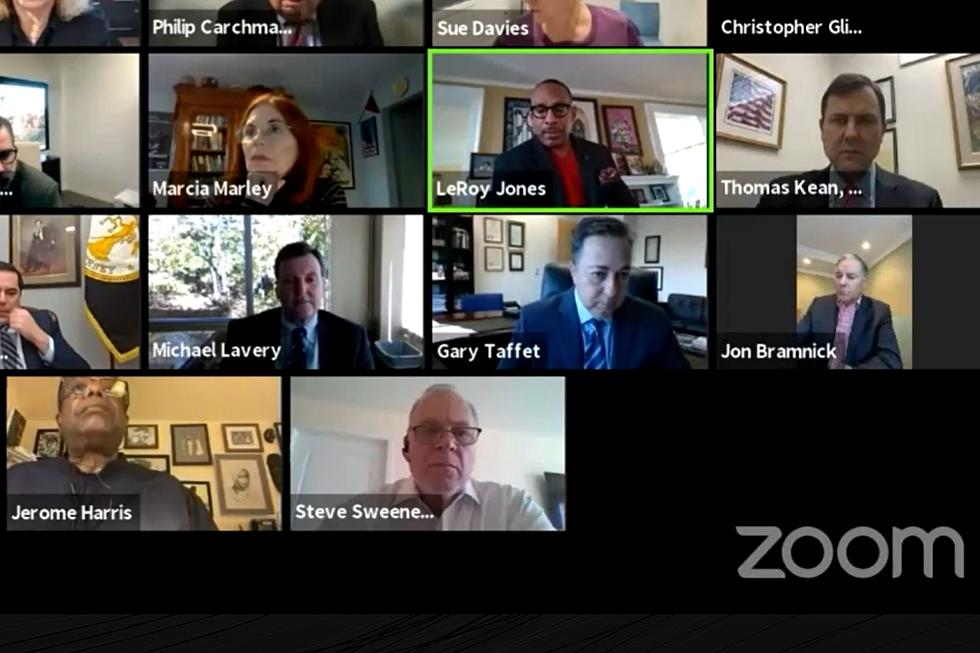
Consumer groups say slow down on Horizon Blue Cross overhaul
TRENTON — Consumer advocacy groups have begun pushing back against new legislation that could move quickly over the next month that would allow Horizon Blue Cross Blue Shield to change its corporate structure. The company is still a not-for-profit but becoming a mutual insurer.
Maura Collinsgru, health care program director for New Jersey Citizen Action, said the pending legislation, A6062, is “really concerning to us” because it appears to allow Horizon to convert from a charitable health services corporation without making a charitable trust settlement payment, as would be required under current law.
“As a charitable health services organization, both Horizon’s mission and their responsibilities to the people and health care consumers of New Jersey are spelled out in statute and are unique,” Collinsgru said. “The proposed conversion raises several red flags and seems to be a potential end-run around those responsibilities.”
A 2001 state law requires a payment into a trust if Horizon becomes a for-profit company to compensate the public for the charitable assets the company has accumulated since being established in the 1930s.
“And that amount of money might be in the range of $5 to $10 billion, judging from recent nonprofit health plan conversions we’ve seen around the country,” said Chuck Bell, advocacy programs director for Consumer Reports, who said the exact value isn’t known and should be studied first, not later.
Kevin Conlin, Horizon’s president and chief executive officer, said the company’s status as a not-for-profit health services corporation limits how the company can spend its money, including a ceiling on business outside of its traditional insurance offerings.
“As health care continues to evolve, so do our customers’ needs and expectations,” Conlin said. “Delivering new technologies, new services and more affordable coverage requires a new approach to our legal structure – one that will provide us with more flexibility to make investments in products and services that our members are demanding.”
Conlin said Blue Cross Blue Shield plans in 18 states have adopted a mutual structure.
Bell said that in other states over the past 25 years, Blue Cross plans have used mutual company structures as a stepping stone to fully convert into a for-profit corporation. He cited Virginia, Ohio and Kentucky as examples.
Bill sponsor Assemblyman John McKeon, D-Essex, said the purpose of the bill is to expand Horizon’s opportunities to invest “in new technologies and other healthcare avenues.”
“With an increased flexibility to provide its policyholders with more innovative products and services, Horizon would become more competitive, putting it on equal footing with industry competitors,” said McKeon. “It’s a win-win for Horizon policy holders and all New Jersey residents to assure access to affordable, quality healthcare.”
Senate President Steve Sweeney, D-Gloucester, who endorsed McKeon’s bill within minutes of its announcement last week, said the public would benefit if Horizon can spend more on consumer technology and preventative care.
“They will help keep costs under control and improve health outcomes, so that medical care is affordable and accessible,” Sweeney said.
Renee Steinhagen, executive director of the New Jersey Appleseed Public Interest Law Center, said Horizon is now making its fourth attempt since 1995 to change its corporate status citing regulatory reasons.
“As I have to say, I have to confess, I do not really understand what’s nonprofit about a company that has all its assets in for-profit subsidiaries,” Steinhagen said.
Collinsgru said lawmakers and Horizon clearly hope to get the bill approved before the current legislative session expires Jan. 14. She expects hearings to be scheduled next week.
“This is not a proposal that should be rushed through lame-duck,” Collinsgru said. “A proposal like this with such far-reaching implications for the residents of New Jersey demands more intense public scrutiny and input.”
Ray Castro, director of health policy for New Jersey Policy Perspective, said “it would be a big mistake” for lawmakers to approve the proposal quickly. He said Horizon covers 3.4 million New Jerseyans, has annual revenues exceeding $3 billion and employs 20,000 people either directly or indirectly.
“The smallest change in the structure of a company this size could have tremendous impact on New Jersey’s residents and economy,” Castro said. “Therefore it is critical that an independent financial study be conducted to evaluate the impact of converting Horizon to a nonprofit mutual holding company system before any legislation is even considered.”
Horizon has been privately discussing the proposal with lawmakers for more than a year. The bill’s text isn’t yet available to the public on the Legislature’s website.
The company appreciates the input from the consumer advocates and looks forward to working with them, other stakeholders and the bill's sponsors, said Tom Vincz, public relations manager for Horizon.
“The legislation recognizes that Horizon’s not-for-profit assets must be preserved for the benefit of New Jersey and specifically requires the not-for-profit mutual, in the event of any effort to become a for-profit entity, to comply with the existing laws that protect the public interest," Vincz said. "Horizon is committed to an open and transparent process, to our not-for-profit mission, to our members, and to the health of New Jersey’s communities.”
New Jersey: Decoded cuts through the cruft and gets to what matters in New Jersey news and politics. Follow on Facebook and Twitter.
Michael Symons is State House bureau chief for New Jersey 101.5 and the editor of New Jersey: Decoded. Follow @NJDecoded on Twitter and Facebook. Contact him at michael.symons@townsquaremedia.com
More From New Jersey 101.5 FM









